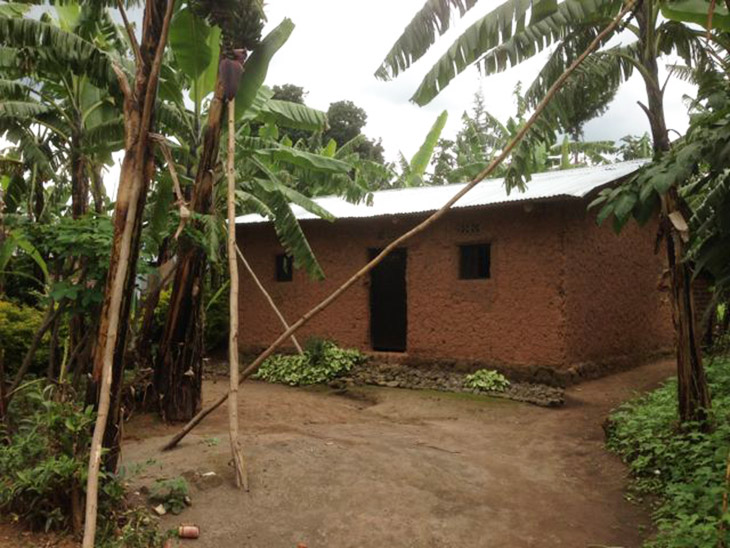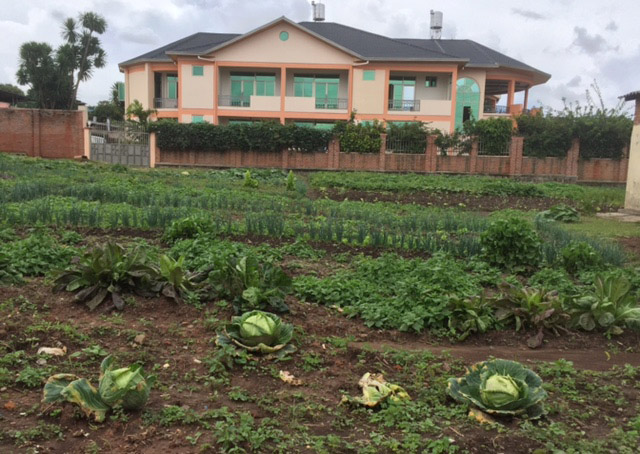CRJ in Rwanda - Weekend update
Editorial Advisory Panel Member Roger Gomm's weekend report from Rwanda, where he is delivering a two-week 'Policing Operations' module to the SE & Central African Police Strategic Command Course at the National Police College, with his colleague Huw Gosling.
It's the weekend, apart from reviewing the students’ learning logs, we have some free time. Last year we arranged a visit to the Volcanoes National Park to see the famous gorillas, which was spectacular. This year we had a jungle trek in the park to the Negazi crater lake. Despite the low cloud, poor visibility and muddy conditions it was an interesting four-hour walk through a rural village, their farmland to the park and the rain forest.
The village farmland was once the lowland forest, which has been largely lost. Importantly the mountain forest is now protected for conservation and tourism despite the expanding population. Park entry is restricted to visitors with a permit, who must be accompanied by a guide and soldiers from the Rwandan Defence Force.
Pictured above right - the porter's sharp eyes pointed out the chameleon hidden in the vegetation and from the tourists
Our trek team included: Guide, Simon; park porter (former poacher) from the local village, Raymond; two well-equipped soldiers, keen to avoid the water buffalo, which we heard but could not see, and took a short detour to avoid; Huw and myself as the tourists.
Walking through the village farmland you soon appreciate that land is the most important source of livelihood for most Rwandans. Eighty per cent of the whole population is dependent on land, hence land remains the base of Rwanda’s economy. All houses in rural areas are given sufficient land to sustain the family by growing crops to support the family. Most grow sufficient food to sell some of the produce at the local market.

A typical rural house made from local products. A solid base of stone/concrete/mud, a wooden frame from the local trees bound together with a mud mix and a tin roof (Huw Gosling)
This is sustainability is the case with our hotel, Home Inn. In picture three (below) you will see our hotel in the background with a large vegetable garden.

The government’s 'One Cow Per Family' programme is designed to support this land ownership.
Villages are given training in sustainable organic agriculture, concentrating on vegetables, maize and beans for human consumption; energy and protein forages (plants and trees) for livestock; trees for firewood and construction, using home-made compost for fertiliser, and welfare-friendly livestock husbandry and housing that allow for good livestock management and manure and urine collection for soil fertility.
A recent evaluation found that over 88 per cent of farmers involved in the programme had increased their income through milk sales and by growing more vegetables using composted manure. All farmers commit to passing on the benefits they receive, such as their cow’s first-born heifer, and the new skills that they have learned, to others, thereby multiplying the impact of the programme.
Rwanda has experienced a remarkable recovery since the 1994 genocide that devastated the country’s human and physical capital, as well as its social and institutional fabric. This economic success has enabled significant progress in the fight against poverty. However, the Rwandan people face many challenges over the next decade to operate a successful transition from recovery and reconstruction-based growth to broad-based and sustainable growth. Rwanda will need to modernise the agricultural sector in order to initiate the transition from a subsistence-based agriculture to one that will be capable of generating the surpluses of labour and capital needed to fuel economic development. This may help to lift more people out of the poverty trap, but they must create more jobs in other areas of the economy.
Roger Gomm
CRJ in Africa
Roger Gomm, 04/05/2015